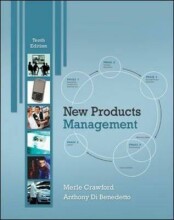What are attributes? - Structural models of attitudes
4 important questions on What are attributes? - Structural models of attitudes
How attitudes are learned:
Evaluations: personal importance of that attribute (alternatively: its weight relative to other attributes)
ATU/e = blec.q.elec.q. + bbooksebooks + bcampusecampus+ bfriendsefriends + bnightlifeenightlife
Personality and personal experience
The tricomponent model consists of three parts:
- Conative: the knowledge and perceptions that are acquired by a combination of direct experience with the attitude object and related information from various sources.
- affective: A consumer’s emotions or feelings about a particular product or brand constitute the affective component of an attitude
- cognitive: is concerned with the likelihood or tendency that an individual will undertake a specific action or behave in a particular way with regard to the attitude object. According to some interpretations, the conative component may include the actual behavior itself.
Multi-attribute attitude model:
- Higher grades + faster learning
- Never study anything twice
- 100% sure, 100% understanding
Attitude towards object model
The question on the page originate from the summary of the following study material:
- A unique study and practice tool
- Never study anything twice again
- Get the grades you hope for
- 100% sure, 100% understanding






























